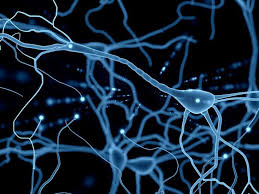The eyes can hurt in many different ways. A person may feel that their eyes are sore, aching, burning, or stinging, or that they have an object or other foreign body stuck in them. Home remedies cannot cure serious eye conditions or infections, such as a fungal infection or uveitis. If a person's eye pain is severe, persistent, or accompanied by other symptoms such as pus or sensitivity to light they should see a doctor. Any loss of vision is also a reason to seek medical advice. People at risk of developing eye disease or complications should also see a doctor if they experience any eye pain. This includes people with diabetes, high blood pressure, and conditions that weaken the immune system. Newborn babies can develop serious conditions as a result of eye infections. Parents and caregivers should take infants with puffy eyelids, red eyes, or eye discharge to a doctor right away. More severe eye pain may occur due to migraine, a scratched cornea, or an infection. If possible, a person should speak to a doctor about their symptoms.
(Credits: www.medicalnewstoday.com)


